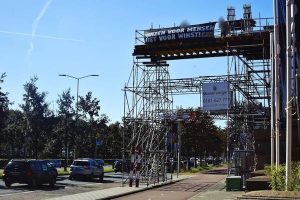Since the 1960s, squatting has functioned as a mean of action to stress out a failing housing and vacancy policy: the reason why for decades a squatting ban was regarded as undesirable without any associated effective measures to prevent vacancy. Although squatting has been banned by law since 2010, vacancy and housing shortage have doubled in the past 10 years. And so people are still squatting. The VVD and the CDA do not see vacancies and housing shortages as a problem, but squatting is. At the moment, these parties are working hard for a change in the law to ensure that squatters can be evicted more quickly, without tackling the underlying problems. Because this law will put the legal position of squatters and precarious residents under severe pressure and will only further increase the historically high vacancy rates and homelessness, actions are taking place in various parts of the country today.
One-sided effectuation Squatting and Vacancy Act
Almost 10 years ago, the Squatting and Vacancy Act was passed, on the condition that not only squatting, but also vacancy had to be reduced. Whereas squatting has always been (and still is!) an important stick behind the door of pawnbrokers, from now on municipalities should play a more active role in tackling speculation on vacant property and impoverishment. Fines for structural vacancy, however, have hardly been imposed and thanks to the gigantic boost of vacancy management/property guardianship, it has only become easier for speculators to conceal vacancy under the guise of ‘occupancy through temporary renting’.
Acceleration of the ‘squat carousel’
In the explanation of the proposal, initiators Daniel Koerhuis (VVD) and Madeleine van Toorenburg (CDA) suggest that Amsterdam is currently being flooded by criminal housing gangs, who, thanks to the suspensive effect of instituting summary proceedings, could all too easily hop from one property to another – the so-called ‘squat carousel’. “This behavior of squatters is possible because the legislation is designed for incidental, isolated crimes, where squatting itself has an increasingly structural character,” they write. Since its existence as a social phenomenon, squatting has of course already had a structural character, in which solving individual housing needs has gone hand in hand with denouncing social abuses in the real estate sector. The squat carousel has always existed in this sense, because the eviction of a squatted building from the squatters who were thrown out on the street was often solved by the squatting of another building. This is an expected consequence of the bill: not a stop of the carousel, but a further acceleration of the carousel.
Profit over people
We cannot see the development of this initiative law in isolation from the ever-increasing criminalisation of homeless people and migrants (with the refugee collective We Are Here as the most appropriate scapegoat) and the further erosion of the constitutional and treaty-protected domestic law. For years, the VVD has been waging an ideological trench war against assertive people who own nothing – above all to safeguard the interests of the richest. For whoever really benefits from this law is a small minority with several houses, who want to remain able to continue to increase the pressure on the available housing stock in order to have the millions rake in for them. Because the private member’s bill offers no alternative to the desperate shortage of affordable housing, this proposal comes as a heartless trap for the least wealthy and most vulnerable in society. Instead of protecting the homeless, urgent home-seekers and precarious people, the government is only threatening to force more people into situations of housing insecurity.
After all, let’s not forget that squatting stands for a lot of good. From the opening up of accessible, inclusive spaces that can be used by anyone to the condition of existence for the alternative creative infrastructure and non-commercial nightlife and meeting places. And together we still manage to preserve monumental buildings that would otherwise be overthrown for a new building of €800 plus. Together we make a lot of valuable things possible. Together we will fight the sale of the city!
We do not allow ourselves to be declared illegal.
Squatting goes on!
Banners in The Hague:
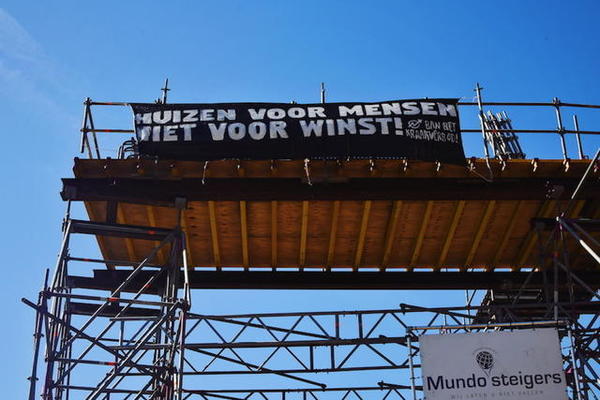
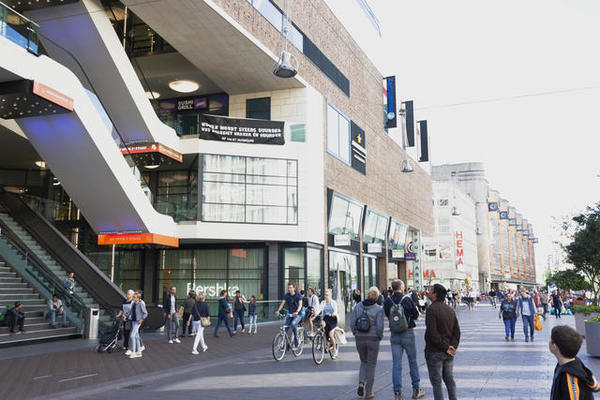
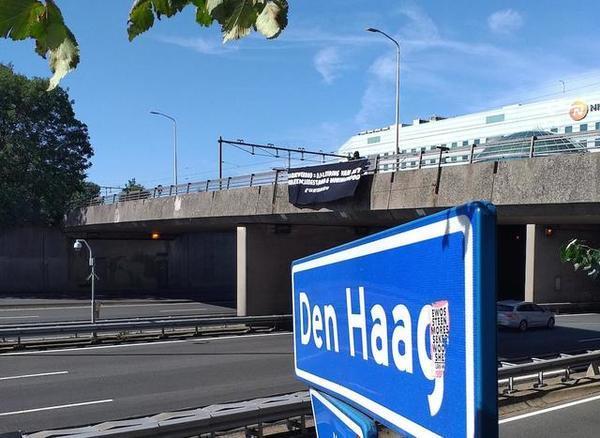
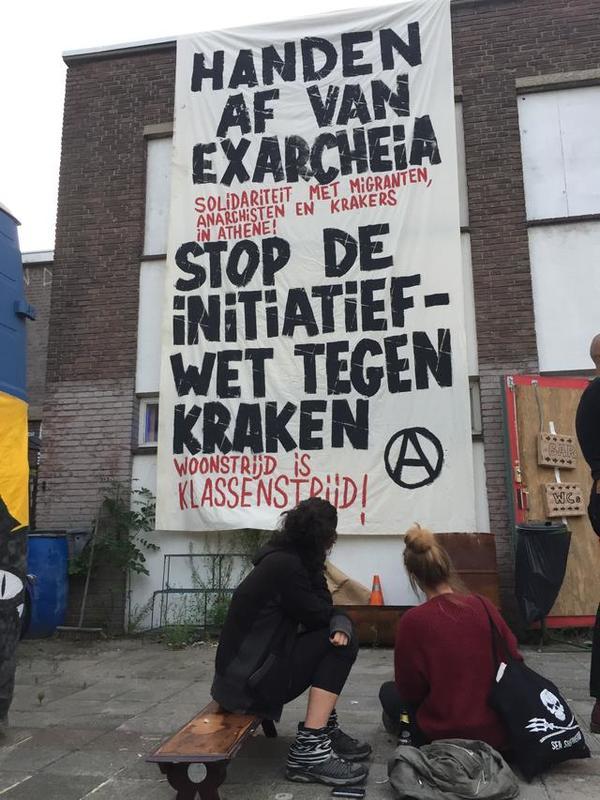 Demonstration in Nijmegen:
Demonstration in Nijmegen:

Banners hanged at Knoflook in Den Bosch
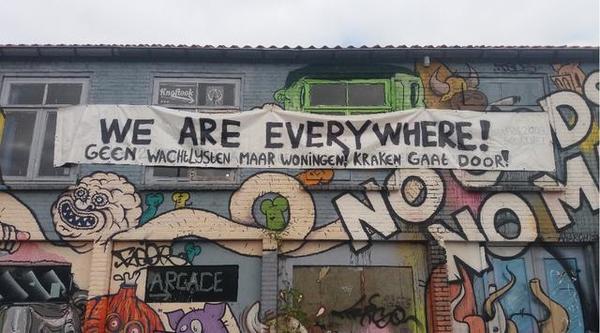
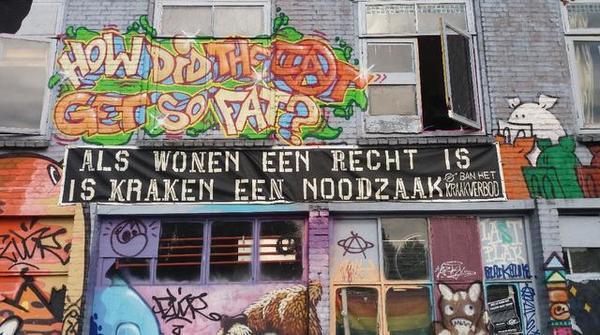 Reactorweg 164-172 squatted in Utrecht, evicted on sunday night
Reactorweg 164-172 squatted in Utrecht, evicted on sunday night
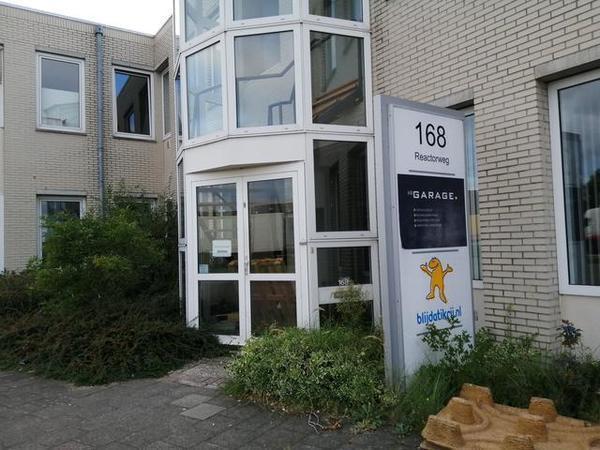
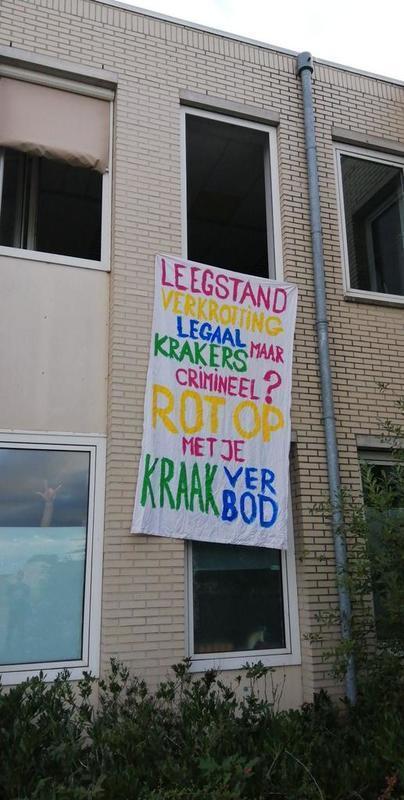 Squatting action and in Amsterdam, Buikslotermeerplein 7 resquatted. Music and speakers on the stage.
Squatting action and in Amsterdam, Buikslotermeerplein 7 resquatted. Music and speakers on the stage.
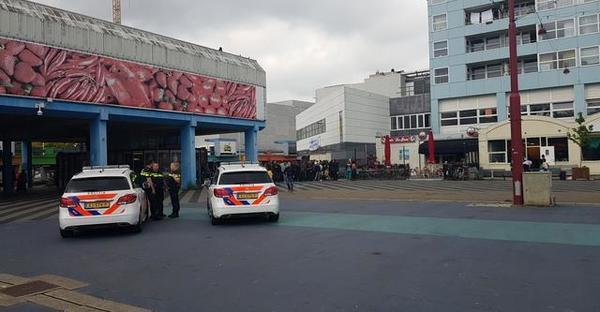
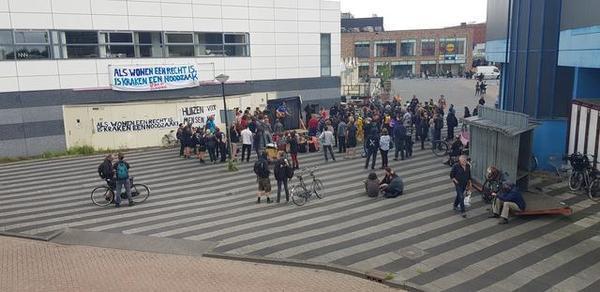 Banner in Amsterdam
Banner in Amsterdam
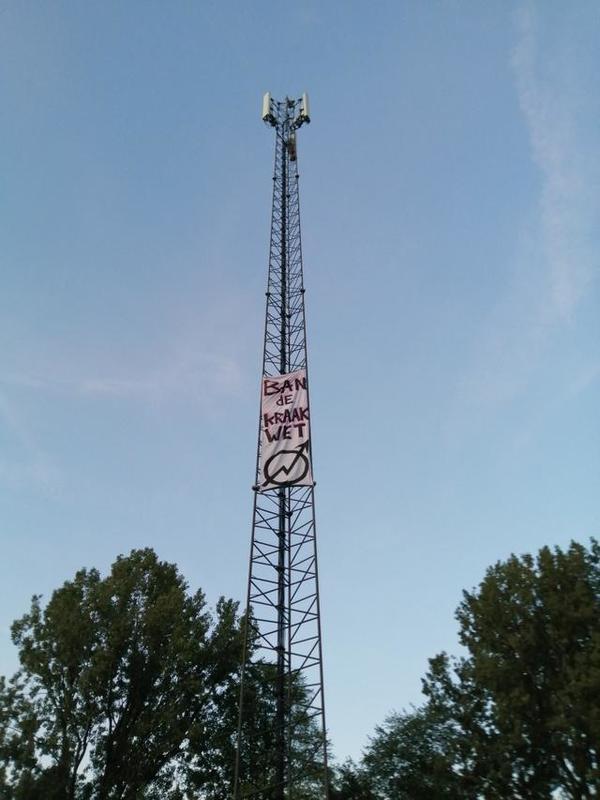
In Wageningen, a group of 10 students squatted a former industrial building on Lawickse Allee.
Some squats in the Netherlands: https://radar.squat.net/en/groups/country/NL/squated/squat
Groups (social center, collective, squat) in the Netherlands: https://radar.squat.net/en/groups/country/NL
Events in the Netherlands: https://radar.squat.net/en/events/country/NL
